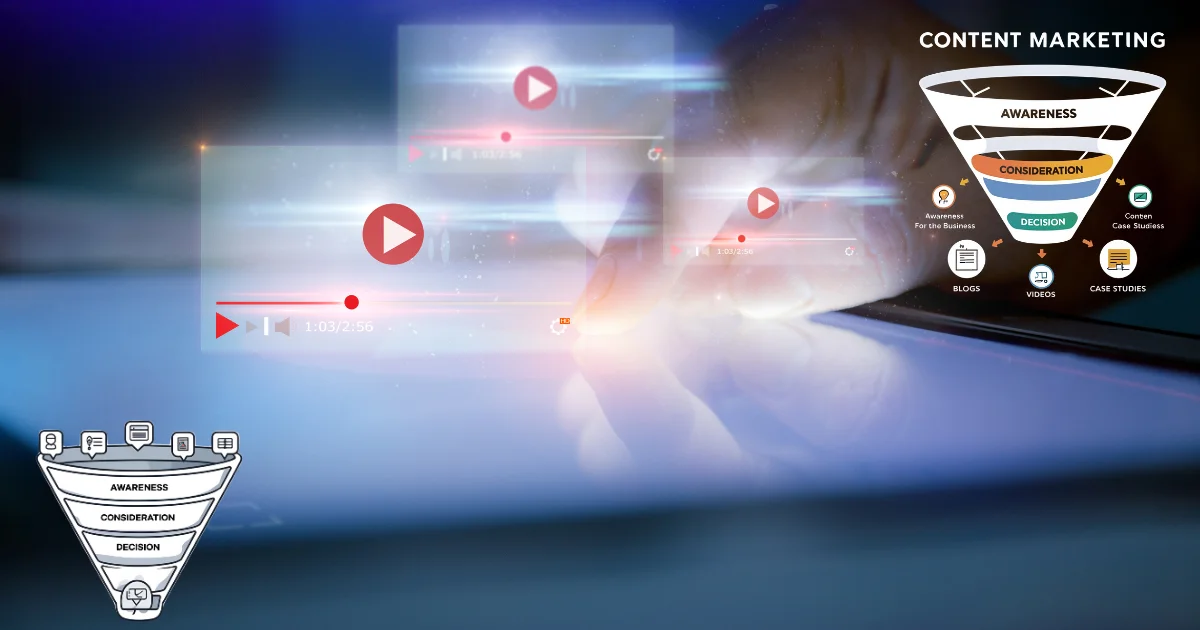Content marketing strategies that get people to visit your site and buy things
It’s not enough to just write random blog entries and hope they work for content marketing. It’s a planned way to make content that attracts the right individuals, earns their trust, and gets them to do something. If done right, it brings in steady traffic and real money. If you do it wrong, it wastes time and money.
This is how to do it right.
1. Make sure you have a clear content strategy
Make sure you know what you’re going to do before you write a word. It is the basis of everything.
Main parts:
Audience personas: Know exactly who you want to reach, what they require, what their goals are, what their pain points are, and how they buy things.
Customer journey map: Learn how your audience goes from being aware to making a choice.
What are your content goals? Do you want traffic, leads, sales, or brand authority?
Channels: Decide where you’ll send it out, such on your website, email, LinkedIn, YouTube, etc.
If this isn’t clear, even the best content won’t hit the mark.
2. Prioritize High-Intent, SEO-Driven Content
Search engine optimization (SEO) is one of the finest ways to get traffic, and when done right, it brings in warm, ready-to-buy visitors.
How to win: Do keyword research with a business goal in mind: Search for phrases like “best project management tool for startups” or “how to choose a CRM for small business.”
Answer search intent: Each post should be in the structure and depth that people who are looking for it expect (for example, a listicle, a how-to, or a case study).
The essentials of on-page SEO include getting the titles, meta descriptions, H1-H3 hierarchy, and internal linking right.
When done right, high-quality blog entries that are optimized for intent-based keywords can bring in a lot of traffic and sales.
3. Create Bottom-of-Funnel (BOFU) Content That Converts
Content at the top of the funnel brings in traffic. Content at the bottom of the funnel makes sales happen. You need both, but a lot of manufacturers don’t pay enough attention to BOFU.
What kinds of BOFU content work well:
Comparing products, like “HubSpot vs. Salesforce: Which Is Best for B2B Sales?”
Pages that show how to use the product for specific sectors or problems
Customer testimonials and case studies that show what really happened
Landing pages for free trials and demos with strong CTAs
People who are about to buy require proof, clarity, and faith. Give it to them.
4. Leverage Email as a Content Distribution Channel
Email marketing is still very much alive. It’s still one of the best ways to nurture and convert leads.
Best practices:
Break up your list: Don’t email everything to everyone. Customize messages based on behavior, role, or stage in the funnel.
Put value first: Not just ads, but also educational information, business news, and exclusive deals.
Use soft CTAs to gently lead customers to demos, free tools, or more in-depth content instead than continuously trying to sell them something.
Use your email list to get more people to see your content, get more people to interact with it, and help them turn into customers.
5. Repurpose & Multiply Your Content
Don’t start from scratch every time. Repurposing boosts ROI and reach.
For instance:
Make a LinkedIn carousel out of a blog article
Turn a webinar into a series of emails
Make a PowerPoint deck or YouTube video out of a white paper.
Make short videos from a podcast for Instagram.
This makes each concept have a bigger effect on more platforms and audiences without making your work load bigger.
6. Use Lead Magnets to Capture Traffic
If you don’t have a way to capture leads, traffic is a squandered chance. Give people a reason to stay with you.
Free templates or checklists are popular lead magnets.
eBooks or how-to guides
Courses or webinars by email
Calculators or tools
Make sure your lead magnet is very related to the content and useful right away. Then put a form in front of it to get email addresses.
7. Build Authority With Long-Form Evergreen Content
Some posts should be 3,000 words long, but not all of them need to be. Evergreen content that addresses big problems in your niche will bring in visitors and authority over time.
Suggestions:
Don’t just write a lot; write a lot of depth.
Use subheadings, bullet points, and pictures to make it easy to skim.
To preserve your rankings and relevancy, update it often.
Some examples are “The Complete Guide to Email Marketing for SaaS” and “Everything You Need to Know About GDPR Compliance.”
8. Collaborate With Influencers and Thought Leaders
Content doesn’t have to be alone. Working with other people to create something together increases your reach, builds your credibility, and reaches new audiences.
Thoughts:
Webinars or podcasts together
Blog entries that round up experts
Guest posting on sites that are known to be safe
Talking to customers or experts
Working together with someone else helps you create trust with people you don’t know yet since they already trust the person you’re working with.
9. Invest in Content Design and UX
People will leave if your content is unattractive, messy, or hard to read, even if the writing is great.
The design is important. User experience is also important.
Best ways to do things:
Use design that are clean and responsive
Add your own charts, graphics, or images.
Put speed and mobile optimization at the top of your list.
Add calls to action that stand out but don’t scream.
Your content is a thing. Make it look and feel high-end.
10. Track What’s Working and Double Down
Content marketing isn’t something you can just do and forget about. You need to figure out what’s working and change it.
Things to keep an eye on: Traffic, especially from email, organic, and referral sources
Engagement: how long people stay on the page, how far down they scroll, and how many people leave the page.
Conversions: filling out a lead form, asking for a demo, making a purchase
SEO performance: backlinks and rankings
Use heatmaps, Google Analytics, and Search Console, among other tools. Then put money back into the formats, subjects, and channels that show a return on investment.
Conclusion
Writing articles is not the only part of content marketing. It’s a means to get the proper people interested, teach them, and get them to do something. When done with a plan and on a regular basis, it doesn’t just bring in visitors; it also creates trust and helps businesses flourish.
Don’t try to do everything at once. Begin with content that is closest to the sale (BOFU content), and then add SEO content, email flows, and lead magnets that will bring in more traffic. Stay on track, keep track of your results, and keep changing.
Frequently Asked Questions: Content Marketing Strategies That Boost Sales and Traffic
How long does it take for content marketing to work?
It depends on where you are beginning from. It can take 3 to 6 months for SEO content to start working, but BOFU material and email marketing can get leads and sales faster. You can see a measurable return on investment (ROI) in 90 days if you use the appropriate method.
What kind of content should I start with?
Start with material that helps sales, like blog entries with a lot of intent, case studies, or pages that compare products. These give you fast victories while you work on developing longer-term assets like guides and pillar pages.
How often should I post new content?
Quality is more important than quantity. It’s better to have a steady rhythm (like 1–2 posts a week) than a lot of postings. Pay attention to depth, relevance, and value.
Expert Graphic Designer | Social Media Marketing Strategist | Content Writer
Specialize in impactful visuals, strategic social media campaigns, and SEO-optimized content.


